第36章
When the French peasant paints the devil he paints him in the guise of a tax collector.From the moment when Montalembert elevated taxation to a god, the peasant became godless, atheist, and threw himself into the arms of the devil, of socialism.The religion of order had forfeited him;the Jesuits had forfeited him; Bonaparte had forfeited him.December 20, 1849, had irrevocably compromised December 20, 1848.The "nephew of his uncle" was not the first of his family whom the wine tax defeated, this tax which, in Montalembert's phrase, heralds the revolutionary storm.The real, the great Napoleon declared on St.Helena that the reintroduction of the wine tax had contributed more to his downfall than all else, since it had alienated from him the peasants of Southern France.As far back as under Louis XIV the favorite object of the hatred of the people (see the writings of Boisguillebert and Vauban), abolished by the first revolution, it was reintroduced by Napoleon in a modified form in 1808.When the Restoration entered France, there trotted before it not only the Cossacks,, but also the promises to abolish the wine tax.The gentilhommerie [gentry]
naturally did not need to keep its word to the gens taillables a merci et misericorde [people taxed pitilessly].The year I830 promised the abolition of the wine tax.It was not its way to do what it said or say what it did.The year 1848 promised the abolition of the wine tax, just as it promised everything.Finally, the Constituent Assembly, which promised nothing, made, as already mentioned, a testamentary provision whereby the wine tax was to disappear on January 1, 1850.And just ten days before January 1, 1850, the Legislative Assembly introduced it once more, so that the French people perpetually pursued it, and when they had thrown it out the door saw it come in again through the window.
The popular hatred of the wine tax is explained by the fact that it unites in itself all the odiousness of the French system of taxation.
The mode of its collection is odious, the mode of its distribution aristocratic, for the rates of taxation are the same for the commonest as for the costliest wines; it increases, therefore, in geometrical progression as the wealth of the consumers decreases, an inverted progressive tax.It accordingly directly provokes the poisoning of the laboring classes by putting a premium on adulterated and imitation wines.It lessens consumption, since it sets up octroi s [toll houses] before the gates of all towns of over four thousand inhabitants and transforms each such town into a foreign country with a protective tariff against French wine.The big wine merchants, but still more the small ones, the marchands de vins, whose livelihood directly depends on the consumption of wine, arc so many avowed enemies of the wine tax.And finally, by lessening consumption the wine tax curtails the producers'
market.While it renders the urban workers incapable of paying for wine, it renders the wine growers incapable of selling it.And France has a wine-growing population of about twelve million.One can therefore understand the hatred of the people in general; one can in particular understand the fanaticism of the peasants against the wine tax.And in addition they saw in its restoration no isolated, more or less accidental event.The peasants have a kind of historical tradition of their own, which is handed down from father to son, and in this historical school it is muttered that whenever any government wants to dupe the peasants, it promises the abolition of the wine tax, and as soon as it has duped the peasants, it retains or reintroduces the wine tax.In the wine tax the peasant tests the bouquet of the government, its tendency.The restoration of the wine tax on December 20 meant: Louis Bonaparte is like the rest.But he was not like the rest; he was a peasant discovery, and in the petitions carrying millions of signatures against the wine tax they took back the votes that they had given a year before to the "nephew of his uncle."The country folk -- over two-thirds of the total French population -- consist for the most part of so-called free landowners.The first generation, gratuitously freed by the Revolution of 1789 from its feudal burdens, had paid no price for the soil.But the following generations paid, under the form of the price of land, what their semi-serf forefathers had paid in the form of rent, tithes, corvee, etc.The more, on the one hand, the population grew and the more, on the other hand, the partition of the soil increased, the higher became the price of the parcels, for the demand for them increased with their smallness.But in proportion as the price the peasant paid for his parcel rose, whether he bought it directly or whether he had it accounted as capital by his co-heirs, necessarily the indebtedness of the peasant, that is, the mortgage, also rose.The claim to a debt encumbering the land is termed a mortgage, a pawn ticket in respect of the land.Just as privileges accumulated on the medieval estate, mortgages accumulate on the modern small allotment.On the other hand, under the system of parcelization the soil is purely an instrument of production for its proprietor.Now the fruitfulness of land diminishes in the same measure as land is divided.